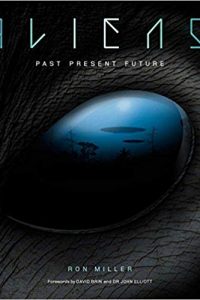Paul Di Filippo reviews Embers of War by Gareth L. Powell
Embers of War, by Gareth L. Powell (Titan 978-1785655180, $14.95, 411pp, trade paperback) February 2018
 The first appearance in Interzone that I can track down for Gareth Powell’s fiction is “Memory Dust” in 2009, although he had been publishing elsewhere since 2004. But Interzone is where I personally discovered this marvelous fellow, and I am glad I did. When his pivotal story “Ack-Ack Macaque” showed up (the three allied novels grown out of it are now collected in a handy omnibus, by the way), I knew readers were in for a great ride on the shoulders of a writer here to stay. And his new novel, the first in a trilogy, bears out all my forecast. It’s a smart, funny, tragic, galloping space opera that showcases Powell’s wit, affection for his characters, world-building skills and unpredictable narrative inventions. (The rest of the trilogy–Fleet of Knives and Light of Impossible Stars–is already in the pipeline for 2019 and 2020.)
The first appearance in Interzone that I can track down for Gareth Powell’s fiction is “Memory Dust” in 2009, although he had been publishing elsewhere since 2004. But Interzone is where I personally discovered this marvelous fellow, and I am glad I did. When his pivotal story “Ack-Ack Macaque” showed up (the three allied novels grown out of it are now collected in a handy omnibus, by the way), I knew readers were in for a great ride on the shoulders of a writer here to stay. And his new novel, the first in a trilogy, bears out all my forecast. It’s a smart, funny, tragic, galloping space opera that showcases Powell’s wit, affection for his characters, world-building skills and unpredictable narrative inventions. (The rest of the trilogy–Fleet of Knives and Light of Impossible Stars–is already in the pipeline for 2019 and 2020.)
Our milieu is the distant interstellar future, long after humanity has been welcomed into the galactic association dubbed the Multiplicity. This loose working arrangement of sentients plays host to at least two human groupings, the Conglomeration and the Outwarders. These human factions fought a war in the recent past that ended inconclusively–the Prologue shows us one of the climactic battles that brought at least a temporary cessation to hostilities–and it proves to be a war that lingers on a secretive level as the tale begins.
Our main focus centers on the crew and activities of the autonomous and conscious ship called Trouble Dog. The living vessel is tasked to the House of Reclamation, a kind of Red Cross/Doctors-Without-Borders organization that performs charitable rescue missions, often in highly dangerous circumstances. The ship’s human captain is one Sal Konstanz. Her second-in-command is a tough ex-marine, a woman named Alva Clay. An alien dubbed Nod, who resembles a huge scaled blue spider, is their engineer. And a young querulous medic named Preston Menderes rounds out the crew. One might profitably recall Poul Anderson’s famous team of David Falkayn, Chee Lan, Adzel and their sentient ship Muddlin’ Through as a literary ancestor.
A second nexus of action is built around Ona Sudak, a famous poet, who is on a pleasure cruise when the starliner she is riding is shot out from under her, sending her fleeing across the surface of an inhospitable world. And thirdly, we encounter one Ashton Childe, a Conglomeration secret agent, who finds his current assignment linked to that of his Outwarder counterpart, Laura Petrushka. As one might intuit, all these separate lifelines will converge.
Powell splits up the narrative chores among several first-person viewpoints, always a tricky but impressive arrangement when a writer can bring it off, as he so capably does. We savor the multifarious awarenesses of Konstanz, Nod, Childe, Sudak and the AI mentality known as Trouble Dog. There is very little overlap among the parts of the story that each one tells, so that we do not have to experience events multiple times, a la Rashomon. Instead, Powell leapfrogs the tale along with concision and expediency. The chapters are taut and bite-sized, making for some propulsive reading. His prose, which wastes no words, is vivid and sharp, and at times grittily poetic.
The story that Powell chooses to tell through this assemblage of viewpoints is full of all the gosh-wow ideation and thriller-style action that one could ask for. We get a full sense of galactic history and cultures, economies and polities. There are super-science wonders–the planet that Ona Sudak crash-lands on is one of several worlds literally carved by vanished aliens into enigmatic sculptures, and she must navigate its mysterious Greg-Bear-resonant interior–and also plenty of techno-squee, from antimatter weapons to hyperspatial travel.
But the real core of this book is the believable emotional interplay among the cast, all of whom are psychically damaged to some degree. (Except maybe the alien Nod, whose droll observations provide some humorous counterpoint.) Konstanz, for instance, has to retreat at intervals to a little hidey-hole in the ship’s hold where she can get drunk and contemplate the wreckage of her life. Sudak is guiltily hiding a secret past. Childe is burnt-out like a Graham-Greene spy. Even the Trouble Dog, trained as a military vessel, feels conflicted about its current goody-goody role. But despite all their neuroses and scars, these actors persist in the struggle to do good, or at least survive. No whiny victims, they are like battered guns held together with duct tape and baling wire, still able and willing to fight.
The story’s surprising conclusion opens out to suitably cosmic vistas, while satisfying the immediate plot demands, and leaves our heroes in new and potentially dramatic configurations.
Fans of Neal Asher, Alistair Reynolds, and Michael Cobley will embrace Powell’s book wholeheartedly. Its fresh spins on the grand space opera motifs, as well as its superior characterizations, prove there’s life in the old Trouble Dog yet.








